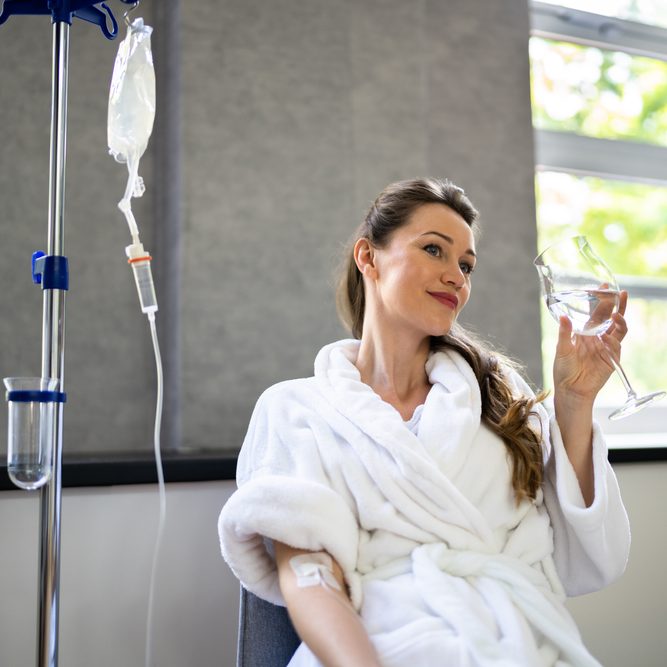Partial Hospitalization Programs for Addiction Treatment
A partial hospitalization program (PHP), sometimes called “day treatment,” is the most intensive drug rehab treatment that does not require overnight stays. PHP programming and resources parallel most of those available with inpatient care, with just the overnight stays eliminated. Nursing care and medication management are often available.
In terms of levels of care, PHP is one step lower than inpatient or residential treatment. But it is also a higher level of care than intensive outpatient or regular outpatient treatment. PHP is best for individuals who have significant addiction issues, those who recently completed inpatient treatment or medical detox, or who for other reasons may require a highly structured and focused environment.

How PHP Compares to Other Treatments
Typically, PHP programs are more time-intensive than other outpatient programs. PHP requires at least 20 hours of treatment or more per week. Sessions are generally held 4-5 days per week but may be conducted 6-7 days per week, depending on the client’s needs. The typical length of PHP treatment is 3-4 weeks; however, treatment can last up to several months if the client’s condition warrants.
In comparison, intensive outpatient programs (IOPs) often include 2-3 sessions per week, with a total of 9-20 hours per week of treatment taking place over several weeks. Regular outpatient programs (OPs) often run for 1-3 hours once or twice per week.
Residential treatment, like inpatient treatment, involves living at a facility during treatment, but residential treatment is usually less medically oriented than inpatient treatment. Not all residential programs have doctors and nurses on staff, especially if they do not provide detoxification services. Some residential programs focus instead on luxury amenities, recreational programming, and holistic treatments.
All outpatient programs typically utilize individual, group, and family therapy sessions, involving evidenced-based practices such as cognitive behavioral therapy (CBT), motivational interviewing (MI), and dialectical behavioral therapy (DBT). PHPs, with longer daily sessions, allow for both individual and group programming, plus socially interactive options. Clients usually share a meal at some point during the day’s treatment, allowing for friendships and social support networks to be developed. Many PHPs also offer life skills training and occupational therapy to assist clients in returning to work and other activities of successful daily living.
Juggling work, family, and recovery can be tough. If you need more help than regular outpatient visits but can’t stay inpatient, a partial hospitalization program or intensive outpatient program (IOP) might be a good fit.
These programs are like in-between steps, offering a more structured schedule with therapy sessions most days of the week. These sessions often include CBT, support groups, and address both substance abuse and any mental health struggles you might have. The best part is: you get to return home each night, so you can stay connected to your loved ones.

Efficacy of Partial Hospitalization Programs
There are fewer long-term studies reporting on the success of PHP programs than other outpatient treatment programs. However, one 5-year follow-up study, published in 2022 by the American Journal of Addiction, found that despite being more expensive than other outpatient programs, 85% of PHP program participants being studied said that they felt that their PHP treatment was “money well spent.” PHP treatment has also been found to reduce the symptoms of depression and anxiety.
It is speculated that PHP’s tightly structured programming, coupled with a friendlier, more relaxed environment than a hospital setting usually offers, allows for greater connection with peers and improves social functioning. Another factor in the success of PHPs might be the enhanced opportunity to establish conditions for transitioning to step-down programs, such as linkages to IOP or general outpatient treatment, and 12-Step peer recovery groups, which are both associated with long-term success.
Despite the reported preference for PHP over IOP or OP by study respondents, follow-up outcome measurements generally revealed that, while short-term abstinence (1 to 3 months) was greater for PHP program participants, there was no discernable difference in abstinence one-year post-treatment between PHP and other outpatient program alumni.
Cost of PHP Treatment
PHP is the costliest of the outpatient drug treatment options, at about $250-$500 per day, or up to $7,500-$15,000 per month. IOP costs about $5,000 per month, and OP costs about $2,000 per month. Only inpatient and residential treatment are costlier than PHP, starting at around $10,000 per month and rising to $50,000 per month or more, depending on the intensity of medical care or the number of luxury amenities. Fortunately, most private insurances cover some, or most, of these costs, reducing out-of-pocket expenses as much as 80% for the client. Benefits for all insurances vary according to the different plans offered.
Besides private insurance companies, government insurances (Medicare and Medicaid) also cover the costs of drug rehab for individuals who are diagnosed with a substance abuse disorder. But co-pays may be required. To qualify for paid PHP treatment under Medicare, the service must be provided at a hospital or a community mental health center, and a certification must be provided by a physician stating that inpatient hospitalization would be required if PHP services were not provided to the patient.
Other federal, state, and local grants may be available from various organizations to help pay for PHP drug rehab. The Substance Abuse and Mental Health Services Association (SAMHSA) provides block grants to all states to assist nonprofit organizations in funding uninsured or underinsured clients. Some PHP facilities may have their own reduced fee or free service plans.
Factors to Consider When Choosing a PHP Program Provider
Choosing a PHP program for yourself or someone you love isn’t always easy. There are a number of questions to consider before selecting a PHP care facility, including:
- What level of care best fits your needs? Are you in need of detoxification? If so, do you require or desire medication-assisted treatment (MAT)? Some, but not all, PHPs offer detox services, with or without MAT.
- Do you need other medical assistance, such as medication management for dual diagnosis treatment or a chronic medical condition (heart problem, diabetes, etc.)? Inpatient care might be a better fit in instances such as this.
- Are you comfortable with variables involved in day treatment? Day treatment allows more flexibility and an option to continue some daily activities with family and friends. But it also increases exposure to temptations and requires a level of personal restraint. You’ll need to consider the logistics of the facility location as well.
- What kind of therapy modalities and programming are offered? What is the balance between individual and group therapy? What other types of therapy are used–experiential (for example role play or communication skills training), holistic and/or body-mind therapies (yoga, meditation, mindfulness training)?
- Is the facility accredited, indicating a level of expected standards? JACO – The Joint Commission on the Accreditation of Healthcare Organizations, or simply “The Joint Commission,” and CARF – Commission on Accreditation of Healthcare Organizations, are the two main accrediting bodies for addiction rehab facilities.
- Does the program offer aftercare services? Does it provide community-based 12-Step programming or alumni meetings? Is there an opportunity to access follow-up services (individual or group sessions) if needed?
By spending some time considering these factors, you will be better able to choose a PHP program that fits your needs and interests.
More Treatment Options

Acamprosate
Acamprosate for Alcoholism: How It Works, Side Effects, and Rehab Use 29 million Americans struggle with alcohol use disorder (AUD), the …

Suboxone
Suboxone — How It Works and Its Role In Addiction Recovery According to statistics from the Centers for Disease Control …

Buprenorphine
How Buprenorphine Helps Treat Opioid Addiction The thought of recovery may seem like an impossible challenge for individuals struggling with …